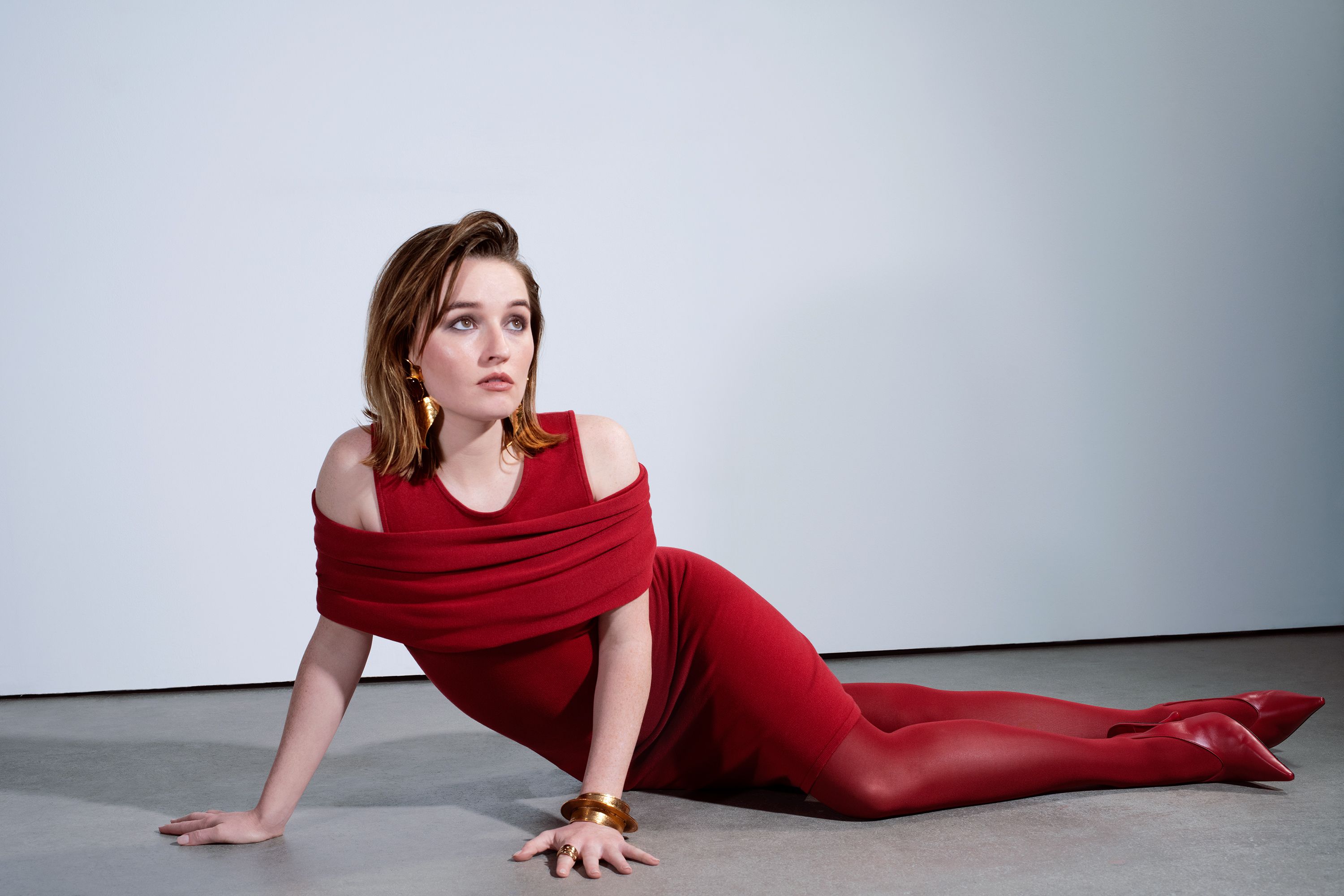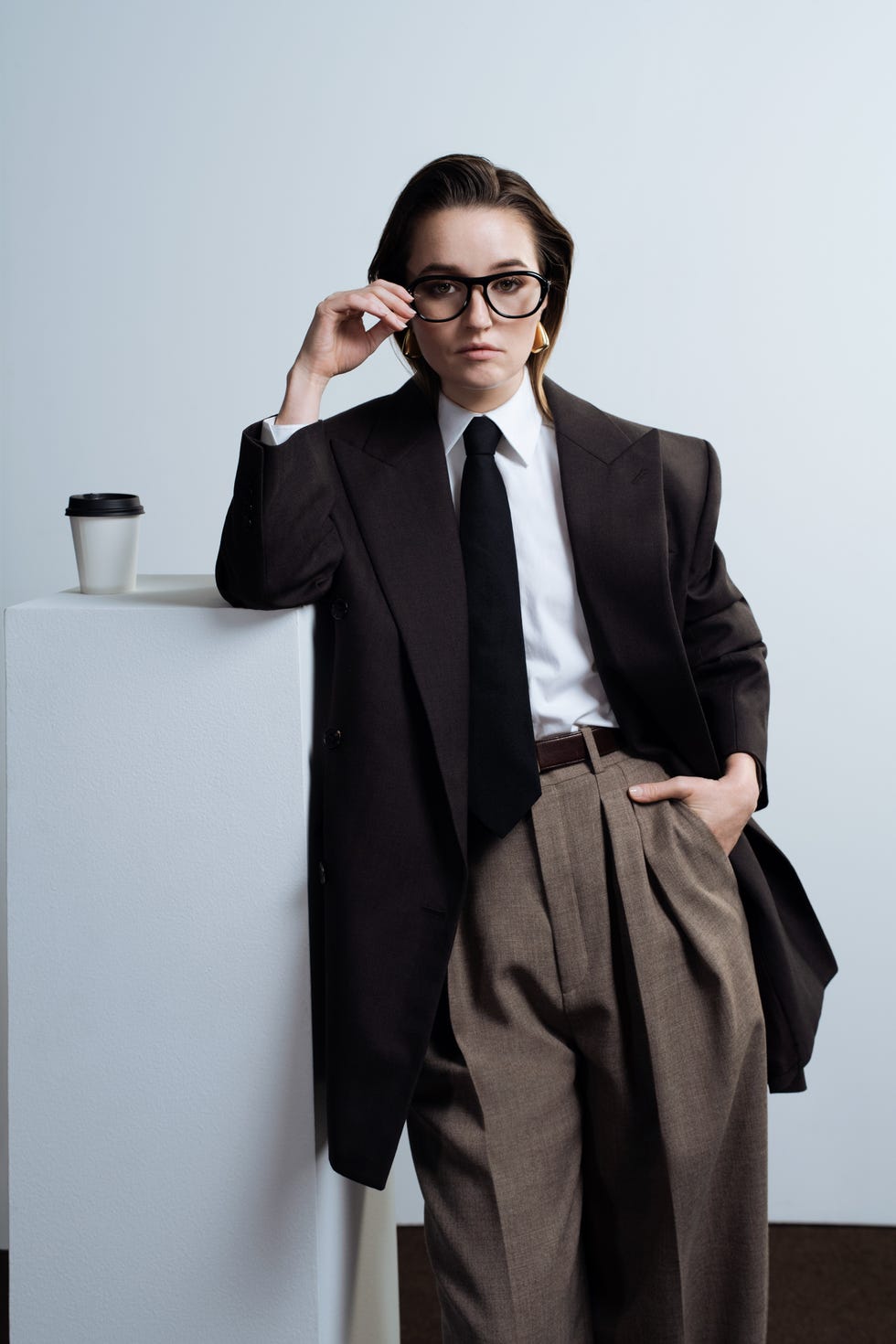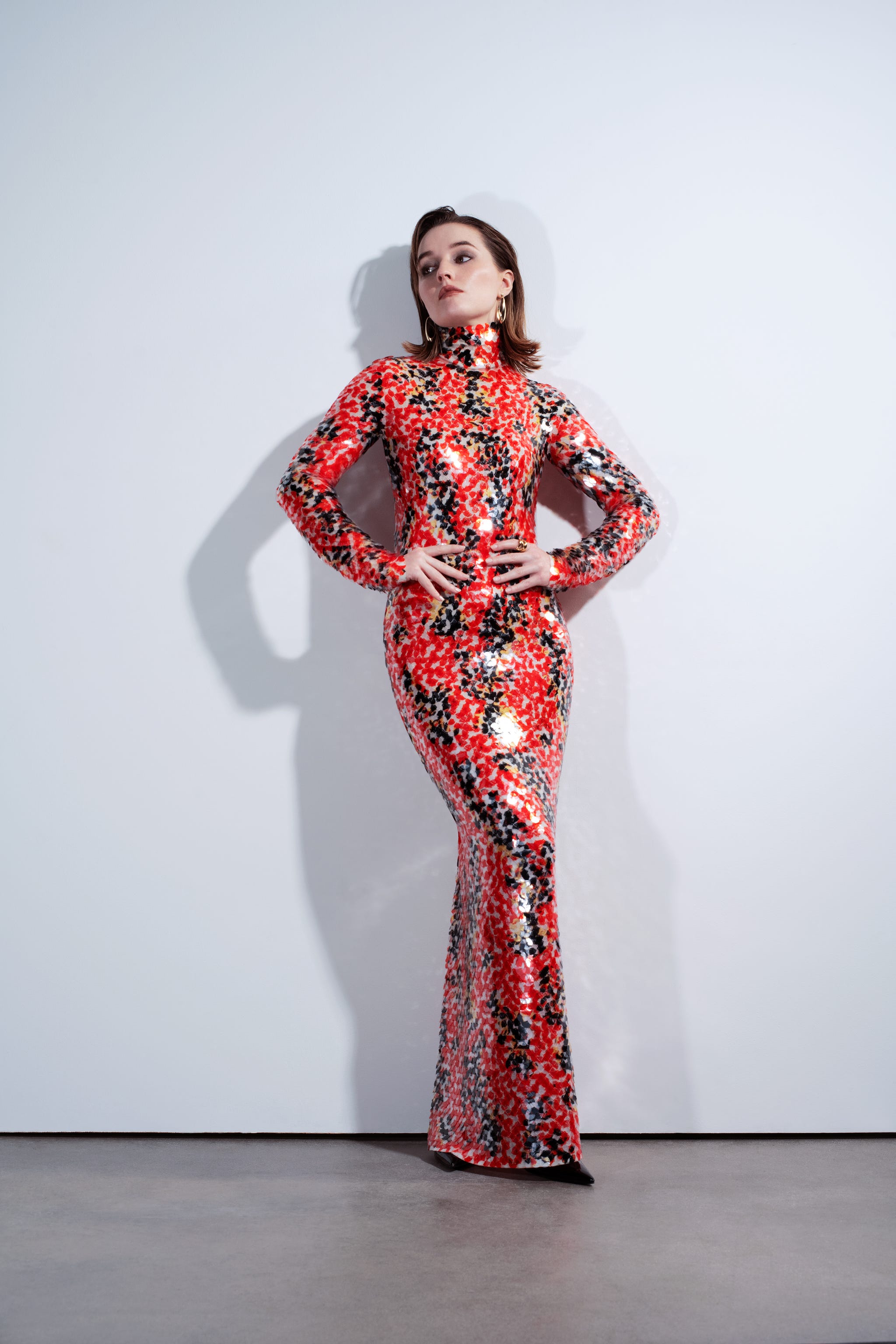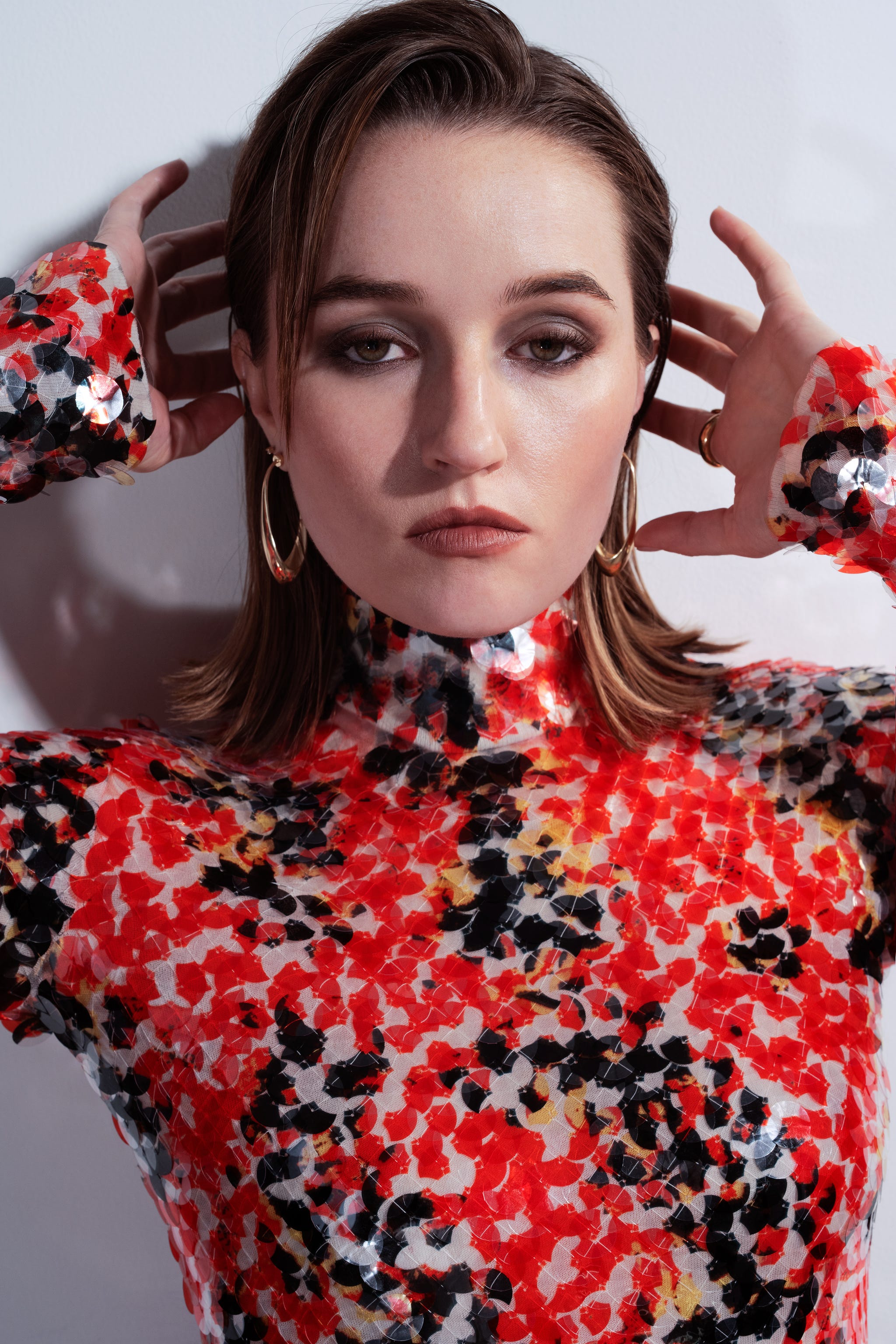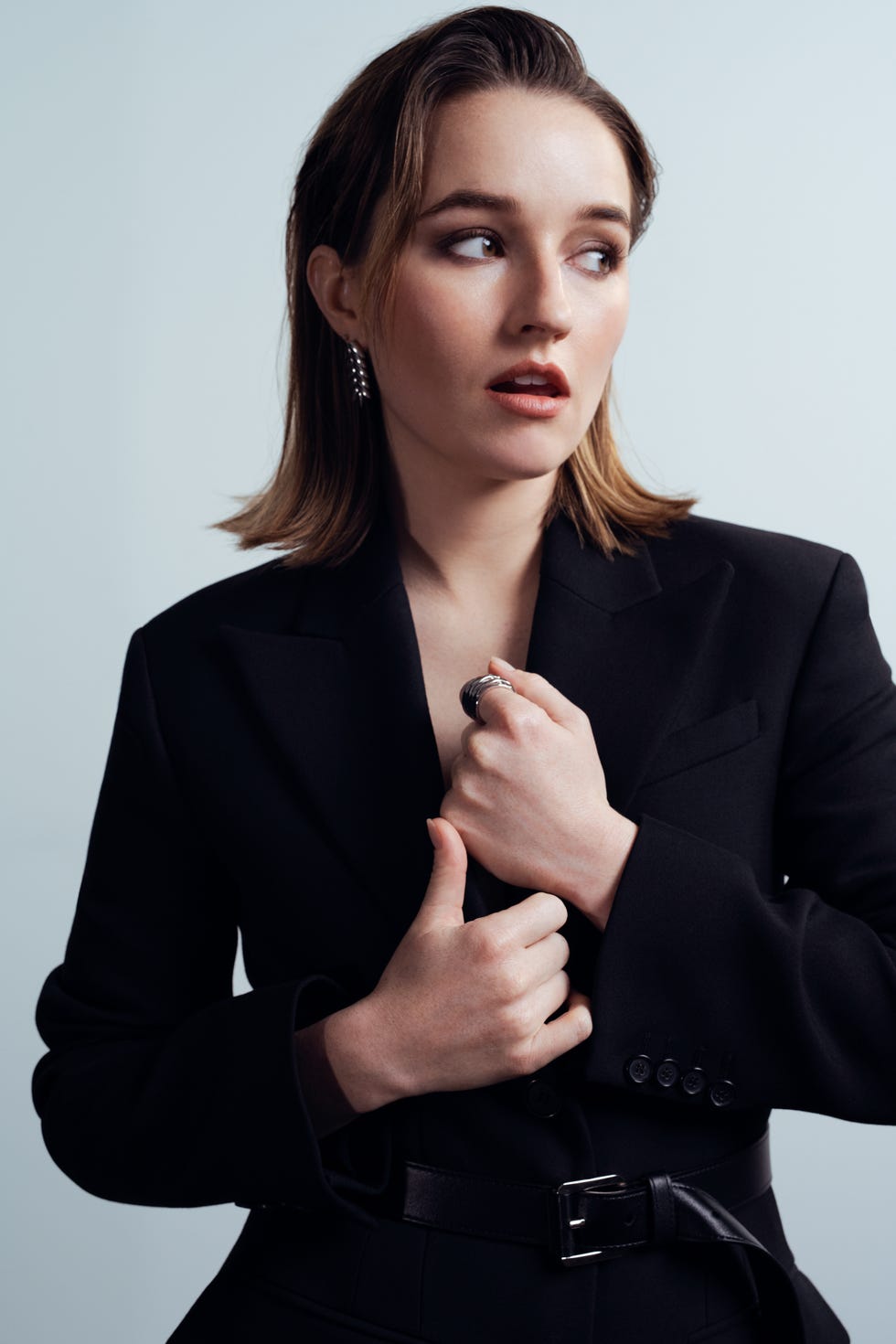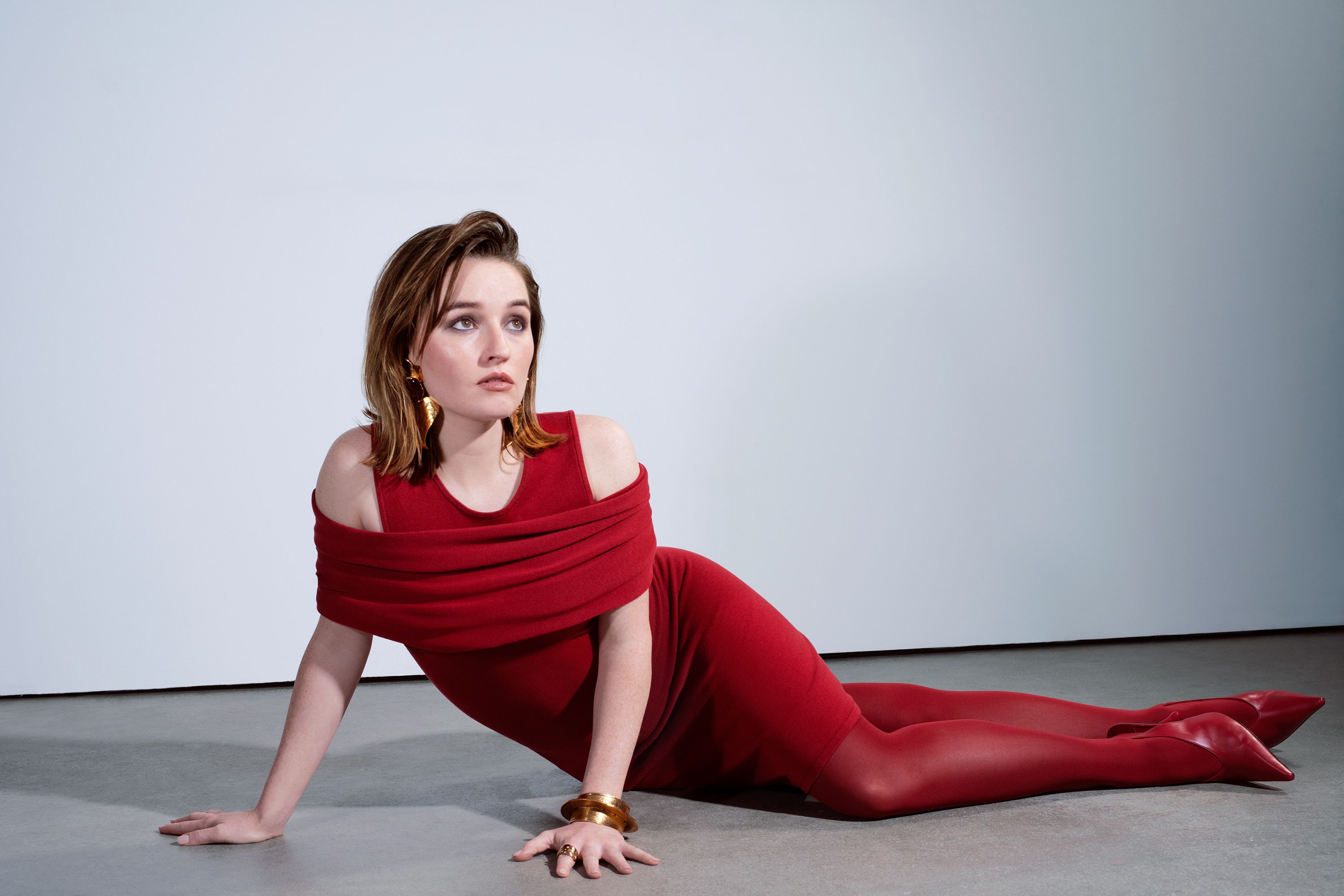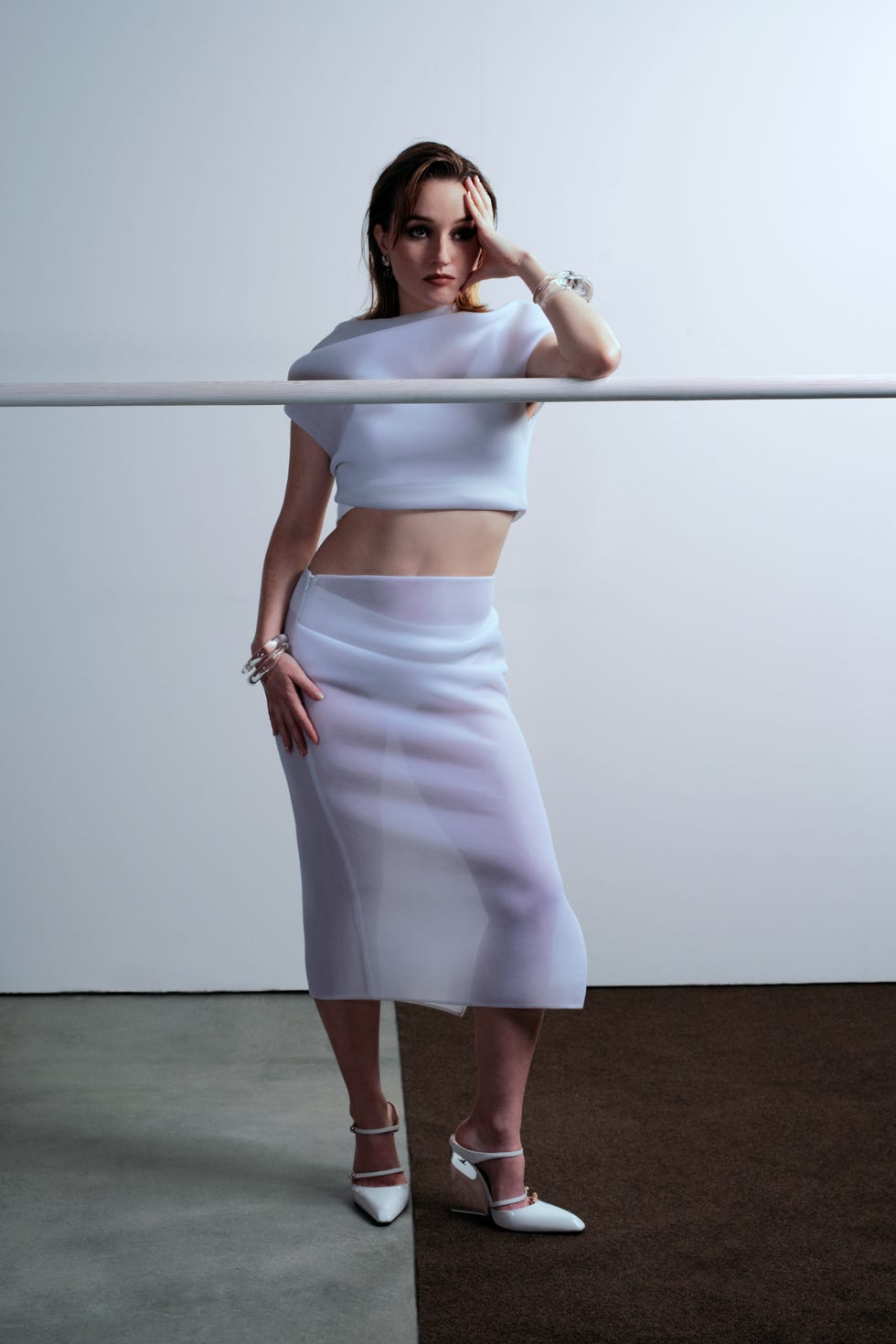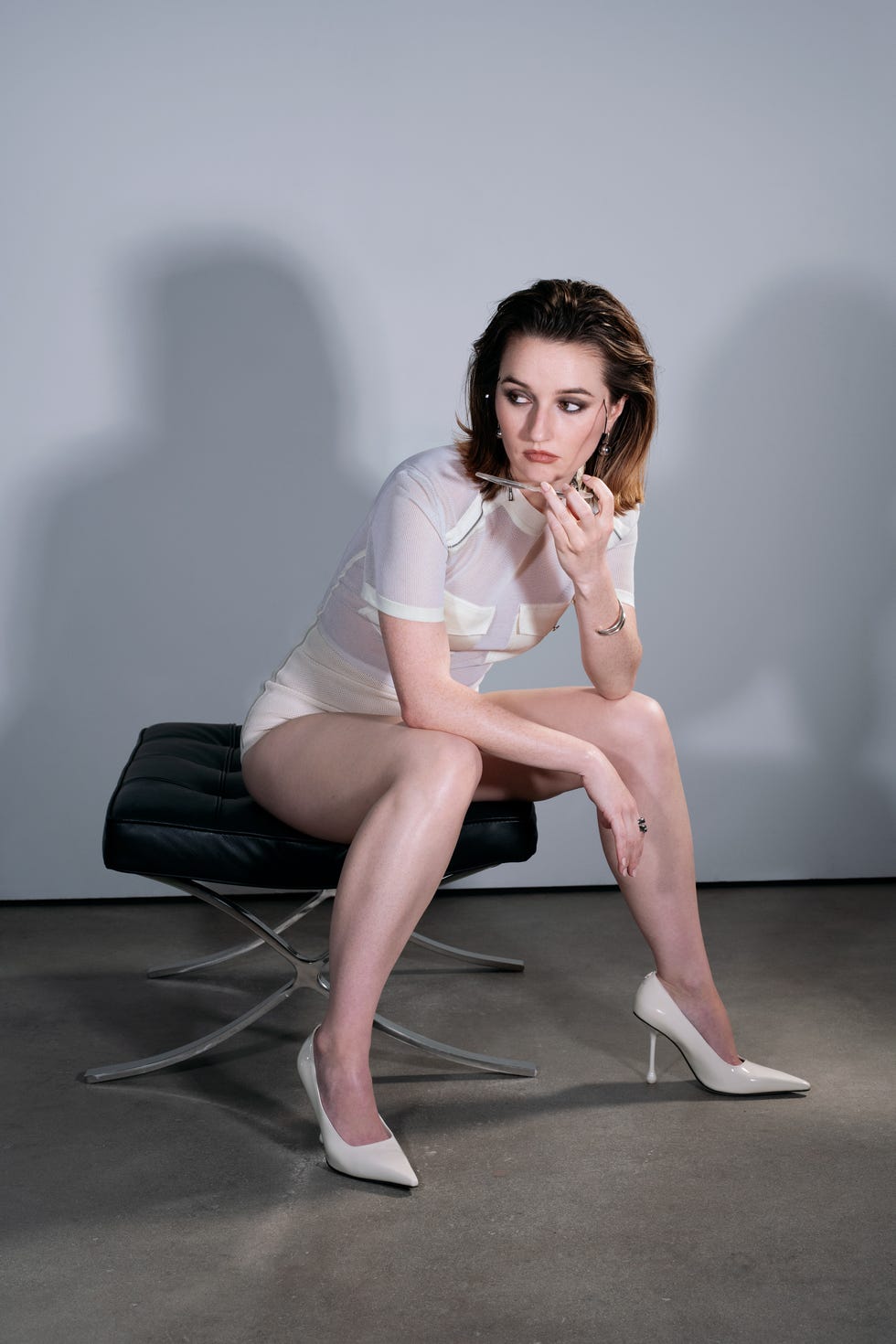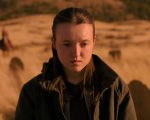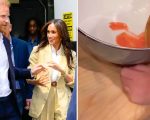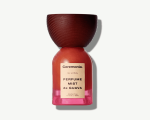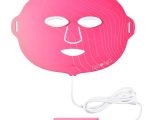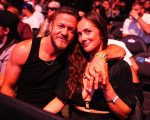The original post is located at www.elle.com
Minor spoilers below.
The year is 2018, and Kaitlyn Dever sits in a makeshift therapist’s office on the set of Netflix’s crime drama Unbelievable, explaining how to survive the zombie apocalypse. Steer clear of the monsters, the actress instructs, but save most of your worries for the humans themselves.
She elaborates: “The zombies are gonna kill you, but they can’t help it.” Their “hunger for human flesh” isn’t their fault—they didn’t ask to be transformed into monsters. But the people who, in the wake of the world’s collapse, “start doing, like, fucked-up things to each other”? “They don’t have an excuse,” Dever concludes. “They know better.” She pauses and glances up at the ceiling, offering a subtle shrug. “Well, they should, anyway. Maybe some stay decent. But you never hear about them.”
The camera zooms in on her bare face, freckles faint but visible in the soft light. In the scene, her character—a sexual assault survivor named Marie Adler—recounts watching the film Zombieland. The film made her laugh, sure, but it also reinforced her traumatized worldview: Humans are fundamentally self-interested and untrustworthy. And though she draws this thesis from the 2009 horror-comedy, she might as well be discussing a different project entirely: the sci-fi drama The Last of Us, rife with its own zombie problem.
Fast-forward almost seven years, and Dever sits upright in a decadent hotel room in Los Angeles, wearing a bib-collar Dôen minidress and sipping soda through a straw. She’s there to promote the second season of the HBO series, in which she plays Abby Anderson—a new face for TV viewers but a familiar name to fans of The Last of Us: Part II, the hugely popular 2020 PlayStation game upon which the new slate of episodes is based. When I mention the Unbelievable scene and its uncanny prescience, Dever smiles, cupping her chin in one hand. “Oh my God, I didn’t remember that scene until just now,” she says. “That’s so freaky.” The zombies, it would seem, have followed her into the future.
For a sizable chunk of her career, Dever has been on the fringes of the growing TLOU franchise. A decade ago, she was under consideration to play the lead female character, Ellie (a role that would later go to Bella Ramsey), in a film adaptation that never came to fruition. At the time, Dever met with Neil Druckmann, co-creator of the game and show, and now the head at Naughty Dog, the studio behind the franchise. The two stayed in touch even as the film entered “development hell,” with Dever earning a small motion-capture role in another Naughty Dog game, Uncharted 4: A Thief’s End, which was released in 2016. By the time the TLOU television adaptation landed at HBO in 2020, Druckmann and show co-creator Craig Mazin worried a now 20-something Dever was too old to convincingly play a 14-year-old Ellie. So Mazin posited another idea: If not Ellie, what about Abby?
In the near-future world of TLOU, the rapid spread of Cordyceps fungus transforms humans into zombie-like monsters called infected, whose bite transmits the fungus into new hosts. It’s in this context that Abby grows up among the Fireflies, a rebel group seeking a cure to the outbreak. But after Joel Miller (as portrayed by Pedro Pascal in the HBO adaptation) thwarts their efforts, Abby enters a violent cycle of revenge.
When Part II—which takes place several years after the events of the first game—was released at the height of the COVID pandemic, Abby became a lightning rod. Players found no shortage of reasons to despise her: She was too psychopathic. Too jacked. Too selfish. Too masculine. Too hypocritical. Too evil. (Laura Bailey, the actress who recorded both the voice and motion-capture animation for the character, became the target of harassment and even death threats online.) Druckmann and Mazin knew the actress portraying Abby for television might have to endure similar scrutiny, and that it would require skill to make Abby’s actions seem both shocking and inevitable, grotesque but human.
They knew Dever could deliver. She first broke out with roles on the FX drama Justified and the ABC sitcom Last Man Standing when she was a teen, then went on to draw acclaim for, among others, her roles in 2019’s Unbelievable (which earned her a Golden Globe nomination); the 2019 Olivia Wilde-directed buddy comedy Booksmart; the 2021 Hulu drama Dopesick (for which she received both Golden Globe and Emmy nominations); the 2022 Shakespeare-inspired rom-com Rosaline; and this year’s Netflix true-crime miniseries Apple Cider Vinegar. If anyone could make audiences love a notoriously easy-to-hate character, Dever could.
Per Druckmann’s recommendation, Dever didn’t speak with Bailey ahead of filming or “pay too much attention” to the expectations set by the game. “I really do want to make the fans proud, but I can’t control what people are going to say,” Dever says. “I have to trust myself and trust my instincts.” She also trusted in the confidence Druckmann and Mazin had in casting her: “That was helpful for me, to let all of the other nerves about playing someone a bit controversial float away—because they chose me to take this on.”
Dever, the eldest of three daughters, was born in Arizona to former professional figure skaters Kathy and Tim Dever. (Her dad also spent some time as a voice actor, moving the family to Texas so he could voice Barney the purple dinosaur.) While based in Dallas, Dever enrolled in acting classes, where she caught the eye of a talent agent who convinced her she had a shot in Hollywood. Sure enough, as she later told the Philadelphia Inquirer, the preteen Dever booked “the first thing my agent sent me out on,” and her family eventually relocated to Los Angeles.
Starting with jobs on the made-for-TV film An American Girl: Chrissa Stands Strong and the ABC Family drama Make It or Break It, Dever then lined up a series of guest roles on shows such as Modern Family and Private Practice before clinching Justified and Last Man Standing. By the time she was 18, Dever had spent much of her adolescence on set, from which she fulfilled her education requirements as part of an independent studies program. (“I had all the rites of passage. Still did the whole winter formal, prom, beach, the graduation, that whole thing,” she assured The New York Times in 2019. “I fully tripped bad at prom. I fell down the stairs.”)
Last December, Dever turned 28, having already spent more than half her life as a working actress. As The Last of Us fans have been eager to point out, she is not a physical match for the game version of Abby. She’s older than the Part II character and several inches shorter, and she doesn’t possess the character’s considerable strength. The Abby in the game is “built like a WWE wrestler,” says Spencer Lord, who plays Abby’s friend and love interest, Owen, in the HBO adaptation. “There’s an intimidation factor just from looking at her [muscles]. Kaitlyn gets that job done simply with her eyes.”
“She doesn’t have to say much for you to be afraid of what’s going on inside her mind,” Lord adds. “She can control the room with just a look.”
Dever admits she put careful thought into these looks, hoping they’d help viewers recognize Abby’s internal turmoil. “I wanted a lot of the broken parts of Abby to show through in her eyes—I wanted to humanize her as much as I possibly could,” she says. “It’s easy to call Abby a villain because of how she presents herself in the world—her tough exterior. But [she’s also] this raw, broken, vulnerable person. It’s important to see that.”
Throughout her career, Dever has made a point of telling stories that “touched on serious societal issues,” she says, including sexual assault, drug addiction, and the wellness industry’s clash with institutional health care. She acknowledges that The Last of Us might not seem as overtly political as Unbelievable, Dopesick, or Apple Cider Vinegar, but there’s a reason it’s nevertheless become such a beloved science-fiction saga. At its core, it’s a tale of a “universal human experience,” Dever says: grief, an emotion the actress has become all too familiar with.
Her mother died of breast cancer in February of last year, right as The Last of Us began production on season 2. As Dever told podcaster Jake Shane on Therapuss earlier this month, she had to jump into filming almost immediately. “I remember talking to my dad about having to go to work after something so catastrophic, and my dad was like, ‘I don’t think there’s a group of people that could have been better to carry you through that time,’” she told Shane. “It really felt like I was being carried through in such a gentle and beautiful way. I don’t know what that would have been like, had it been another job.”
Now she considers Abby’s grief the key to humanizing the character for a new audience. “Pain and grief and how it manifests itself—I think it’s really important to always show that in a raw way,” Dever says. “If Abby’s experience makes someone feel a little more seen as they’re dealing with loss, I think that’s a really good thing.”
Looking back on the strange series of connections that have carried her from that therapist’s office on the set of Unbelievable to now, Dever says she’s eager to enjoy the culmination of a decade’s worth of The Last of Us in her life. “I’m excited for people to see this version of Abby,” she says. “It really does feel like…‘Whoa.’ This series was, strangely, I think, meant to be in my life. Always. It just was a matter of time.”
Hair by John D at Forward Artists; makeup by Kara Yoshimoto for Chanel Beauty; manicure by Emi Kudo for Dior; set design by James Lear at 11th House Agency; produced by Crawford & Co Productions.

